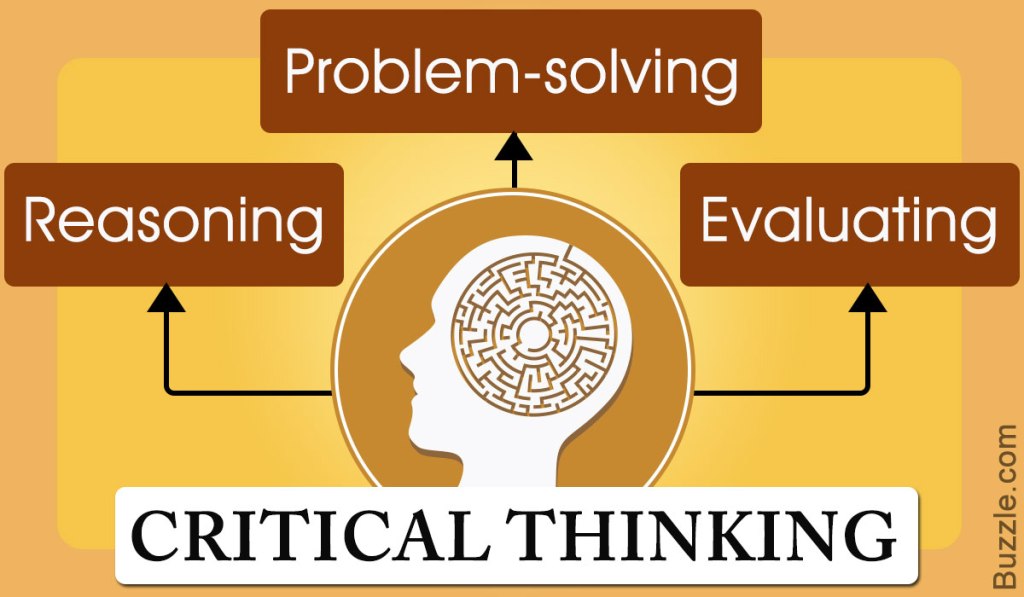Logical Reasoning: Unlocking the Power of Critical Thinking
Introduction:
In today’s rapidly changing world, where information is abundant and opinions are diverse, it has become more important than ever to develop strong critical thinking skills. Logical reasoning plays a crucial role in this process, helping individuals make sound judgments and arrive at well-reasoned conclusions. In this article, we will explore the concept of logical reasoning and its significance in education, as well as provide practical tips on how to improve this essential skill.
Understanding Logical Reasoning:
At its core, logical reasoning involves using rationality and evidence-based thinking to analyze problems or situations. It allows us to draw conclusions based on facts rather than emotions or biases. By employing logic in our decision-making processes, we can evaluate arguments objectively and reach informed choices.
Logical reasoning encompasses several components that contribute to effective critical thinking. These include deductive reasoning, inductive reasoning, syllogisms, analogies, and causal relationships.
Deductive Reasoning:
Deductive reasoning starts with general premises or principles and applies them to specific instances or cases. This type of logical thinking relies on established rules or assumptions to reach accurate conclusions. For example:
Premise 1: All mammals have fur.
Premise 2: A dog is a mammal.
Conclusion: Therefore, a dog has fur.
Inductive Reasoning:
Inductive reasoning involves making generalized predictions based on specific observations or patterns. Unlike deductive reasoning which moves from general principles to specifics; induction goes from specifics to generalizations. An example of inductive reasoning would be:
Observation 1: Every time you eat peanuts before bed you get nightmares.
Observation 2: Your friend eats peanuts before bed and reports having nightmares.
Conclusion: Eating peanuts before bed may cause nightmares for some people.
Syllogisms:
Syllogistic reasoning consists of two premises followed by a conclusion derived from those premises using deductive reasoning. Syllogisms help us identify the logical relationship between statements and evaluate their validity. For instance:
Premise 1: All humans are mortal.
Premise 2: Socrates is a human.
Conclusion: Therefore, Socrates is mortal.
Analogies:
Analogical reasoning involves comparing two or more situations to draw conclusions about their similarities or differences. By recognizing patterns and relationships, we can apply knowledge from one domain to another. For example:
Situation 1: A car needs fuel to run.
Situation 2: The human body needs food for energy.
Conclusion: Just as a car requires fuel, the human body requires food to function.
Causal Relationships:
Causal reasoning explores cause-and-effect relationships by identifying connections between events or variables. This type of thinking helps us understand how actions lead to specific outcomes. An example of causal reasoning would be:
Event 1: It rained heavily last night.
Event 2: The streets are wet this morning.
Conclusion: The rain caused the streets to become wet.
The Importance of Logical Reasoning in Education:
Developing strong logical reasoning skills has numerous benefits for students at all levels of education. Here’s why it deserves special attention in alternative schooling and education:
1. Problem Solving:
Logical reasoning equips students with the ability to approach problems systematically, break them down into manageable parts, and devise effective solutions based on evidence rather than guesswork. This skill cultivates critical thinking abilities that extend beyond academic settings into real-world scenarios.
2. Decision Making:
By utilizing logical thinking processes such as deductive and inductive reasoning, individuals can make informed decisions free from impulsive judgments or biases. These decision-making abilities foster autonomy and self-reliance among students.
3. Analytical Skills:
Logical reasoning enhances analytical skills by encouraging students to examine information critically, differentiate between relevant and irrelevant details, identify patterns, draw connections, and evaluate arguments. These skills are essential for academic success across various subjects.
4. Effective Communication:
Logical reasoning nurtures effective communication skills, enabling students to express their thoughts coherently and persuasively. It helps them construct well-organized arguments supported by evidence, enhancing their ability to engage in meaningful discussions and debates.
5. Lifelong Learning:
By fostering logical reasoning abilities, alternative schools promote a lifelong love of learning. Students become curious thinkers who continuously seek knowledge through inquiry-based approaches rather than relying solely on memorization or rote learning.
Improving Logical Reasoning Skills:
Now that we understand the importance of logical reasoning let’s explore some practical strategies for improving this vital skill:
1. Practice Puzzles and Games:
Puzzles, riddles, Sudoku, chess, and other brain-teasing games can enhance logical reasoning by challenging individuals to think critically and find solutions using rational thinking processes.
2. Engage in Debates and Discussions:
Participating in debates or structured discussions allows students to analyze different perspectives critically while building strong argumentation skills based on logic and evidence.
3. Encourage Problem-Based Learning:
Integrate problem-based learning strategies into the curriculum where students actively engage in solving real-world problems using logical thinking processes such as deduction or induction.
4. Promote Analytical Reading:
Encourage students to read diverse materials carefully while questioning the author’s claims or arguments critically. Teach them how to identify fallacies or weak points within texts through close analysis.
5. Utilize Digital Tools:
There are numerous digital tools available that can aid in developing logical reasoning skills through interactive exercises or simulations designed specifically for this purpose.
6. Incorporate Logic Courses or Workshops:
Consider incorporating dedicated logic courses or workshops into the alternative schooling curriculum as a way of systematically teaching logical reasoning techniques and principles.
Conclusion:
Logical reasoning is an indispensable skill that empowers individuals with critical thinking abilities necessary for success in education and beyond. By honing logical reasoning skills, students can navigate complex problems, make informed decisions, and become effective communicators. Alternative schools play a vital role in nurturing these skills by integrating strategies that promote logical thinking into their educational practices. As educators, parents, and society at large, it is our responsibility to prioritize the development of logical reasoning skills to equip future generations with the tools they need to thrive in an ever-evolving world.

Leave a comment